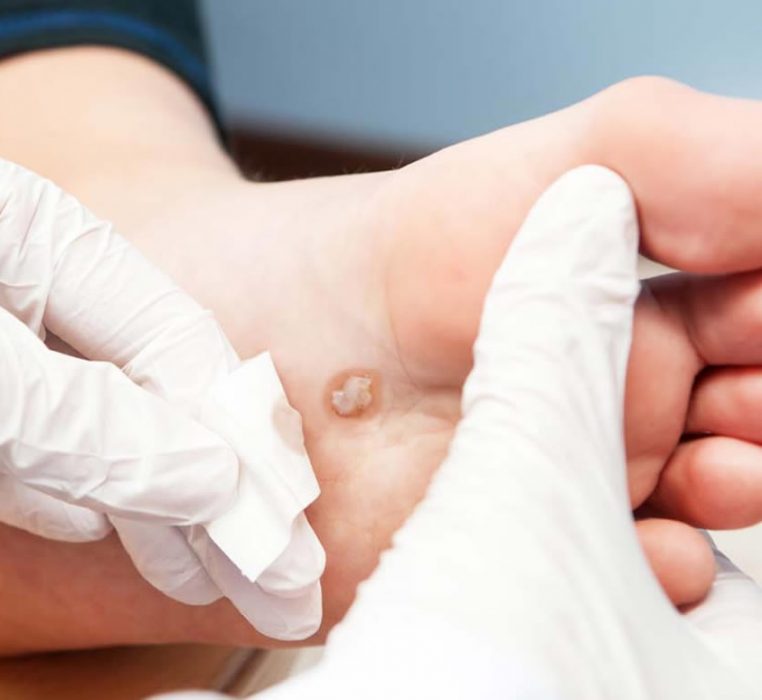
Wart Treatment Podiatry
Plantar warts are very common, especially in children. Warts are small (benign) skin growths occurring on the skin of the foot due to a viral infection in the body deriving from the human papillomavirus or HPV. The virus causes rapid growth of cells on the outer layer of the skin. The viruses are present everywhere and are spread when they come in direct contact with the skin where the outer protective layer is broken, either by minor trauma or by moisture. Plantar warts are different in their appearance from the common raised wart commonly seen on the knees and elbows of children, although these too are most common in children due to their less mature immune system.
Plantar warts are not usually a serious health issue and may disappear in a few weeks or last many years. Plantar warts can often make walking difficult because they press inwards causing pain on pressure on certain parts of the foot. This tenderness can create bio-mechanical issues as you start to favour the affected area and change your foot posture. So this little problem can be a real nuisance!
Warts are not harmful. They can cause irritation and pain especially if they are in areas of high pressure (like the soles of our feet).
A person’s risk of developing a wart is varied. Those with a weakened immune system are at a higher risk of developing a wart however, people with healthy immune systems can still develop warts. They usually develop on feet that are maintained in a warm, moist environment.
PLANTAR WART TREATMENTS:
Although plantar warts are often pain free they should be treated as they can spread (either elsewhere on your foot or to other members of the family), can be unsightly and can eventually become painful if left untreated.
Many plantar wart treatment options are available to treat warts with varying degrees of success. Unfortunately, ‘over the counter’ preparations are not always the best option in treating plantar warts as they are weak in strength and generally plantar warts develop a calloused thickening that needs to be debrided to aid the potency of the topical treatment.
This is where our podiatrists can help. Treatments usually involve localised skin irritation of the wart to allow for an immune response to resolve the wart. We offer relatively pain-free treatment for the removal of plantar warts using non-invasive methods. Our podiatrists are skilled in debriding the calloused wart to expose it for topical treatment. We also have a range of products in varying degrees of strengths to apply to the plantar wart.This treatment, which often requires multiple applications over the course of several weeks, removes the viral cells slowly and allows healthy skin cells to replace them. This whole process is relatively pain free. This is heavily dependent on the location and size of the plantar wart. Your podiatrist will also give you useful tips on helping to prevent further recurrence.
Surgical removal (excision) usually is not recommended to treat plantar warts because it can cause painful scarring
Treatment of plantar warts varies greatly from person to person. Plantar warts are often more difficult to treat as the growth is pushed into the skin due to day to day walking. In most cases warts will self-resolve within 2 years however, positioning of the wart can greatly affect quality of life.
So if you notice a growth on your foot or changes in your skin, do not ignore it! Chances are it might be a plantar wart in the making. Visit us at One Step Podiatry immediately as early detection and treatment allows for better prognosis.

